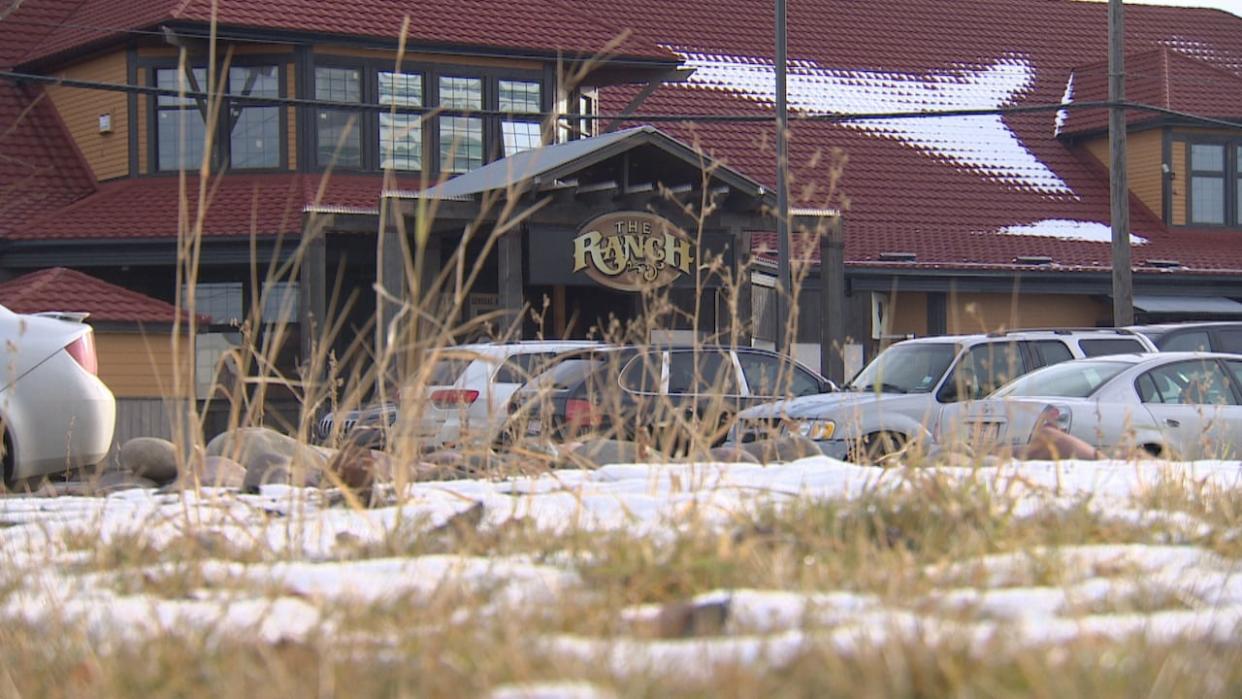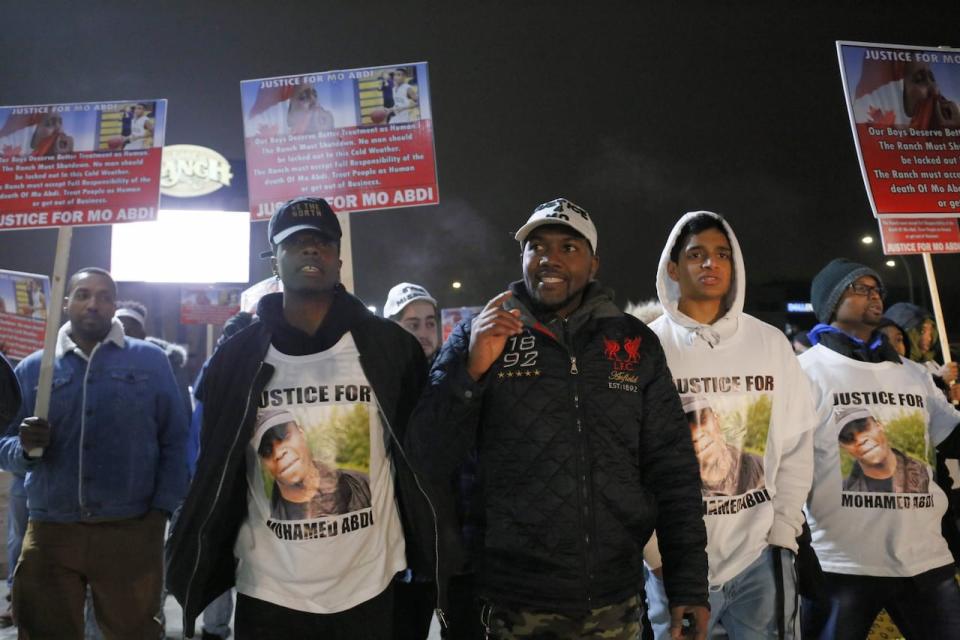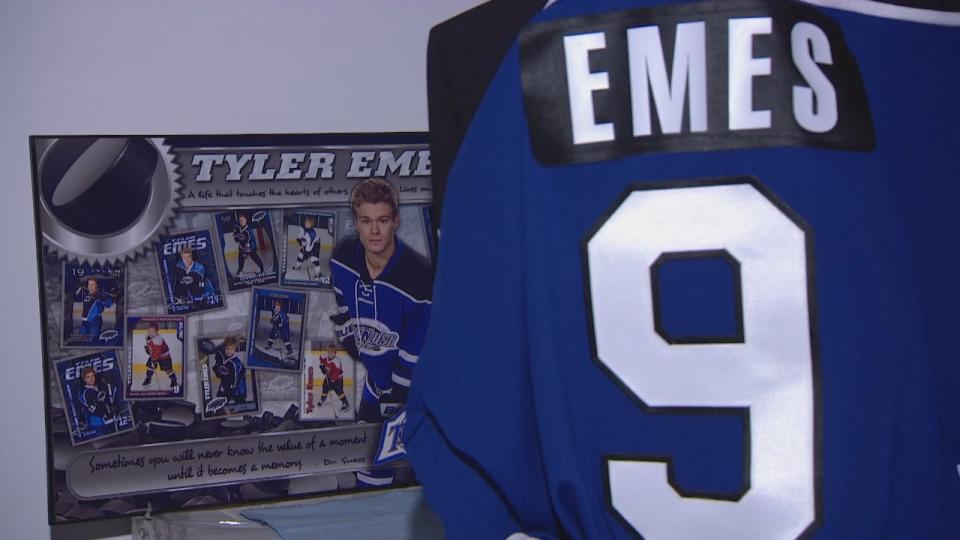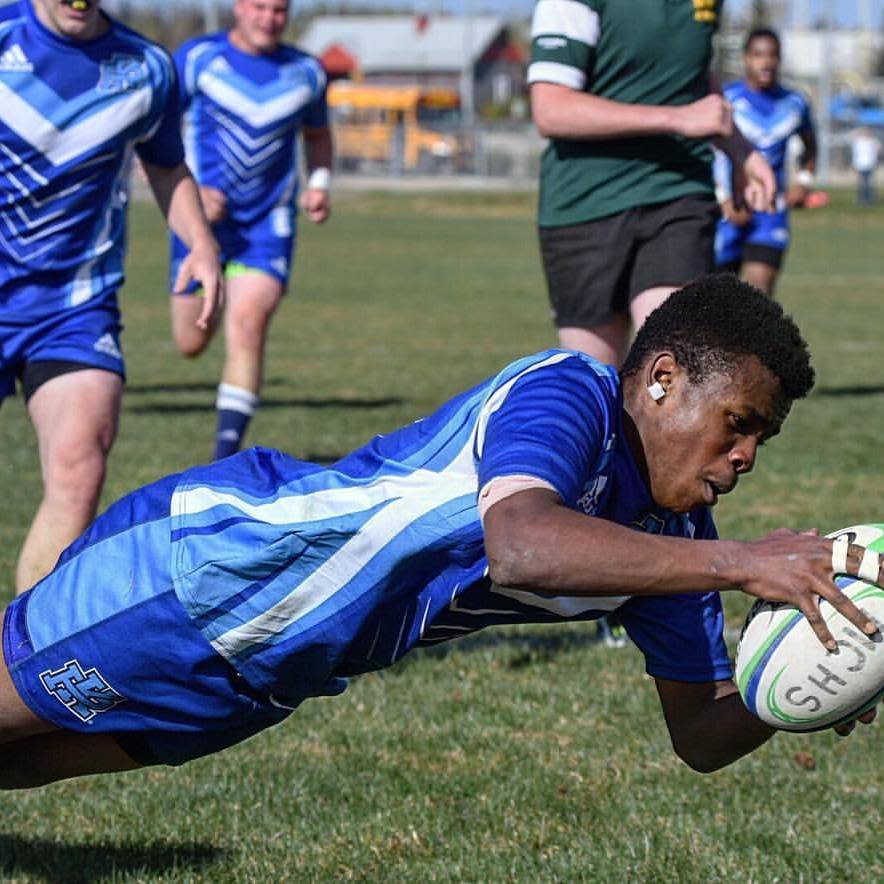Court scrutinizes events preceding hypothermia deaths linked to south Edmonton bar

Day Three of a fatality inquiry into the deaths of two young men, who each froze to death more than five years ago, has revealed more information about their visits to the same south Edmonton bar.
Tyler Emes, an 18-year-old from Slave Lake, Alta., who had recently moved to the city to attend MacEwan University, was found dead in the snow outside on Nov. 19, 2017.
Mohamed Munyeabdi, a 20-year-old Edmonton resident who immigrated to Canada from Kenya and had dreams of serving in the Canadian military, was found dead outside on Nov. 18, 2018, partially frozen underneath a vehicle.
Both men had visited The Ranch Roadhouse, a large bar on Calgary Trail, south of Argyll Road, shortly before they died.
Friends protested outside the bar after Munyeabdi's death and a petition calling for the bar to be shut down drew more than 32,000 signatures.

People gathered outside the Ranch Roadhouse in south Edmonton after the death of Mohamed Abdi, demanding the bar shutdown. (Jordan Omstead/CBC)
The public fatality inquiry started Monday and is scheduled to run through Friday. Fatality inquiries do not determine legal responsibility but they can lead to recommendations for preventing similar deaths.
Justice Carole Godfrey, with the Alberta Court of Justice, will write a report on the deaths.
Emes' death
Edmonton Police Service (EPS) Det. Jared Buhler, who was the lead investigator for Emes' case, testified that the death was initially considered suspicious, but he and his colleagues concluded it was non-criminal.
Video played in court showed Emes entering the bar with friends, dancing and drinking multiple shots in quick succession shortly after 1:20 a.m MT. He left the bar alone at 1:48 a.m.
When he was last captured on video, around 2:15 a.m., Buhler said, Emes was obviously cold and intoxicated — more so than when leaving the bar. He was not wearing a jacket.
A woman, who had been at The Ranch picking up a son that night, told police that Emes had asked her for a ride home, telling her he had money, Buhler said.
She told police she declined to drive him but saw him approach a red taxi and open its back door, he said.
"Did he get in a cab and then get kicked out?" lawyer Douglas Boyer, who is representing the business, asked Buhler.
The detective said that was a possibility but police don't know for sure.
Emes' body was found a few blocks away from the bar, near 66th Avenue and 99th Street. An autopsy revealed he died of hypothermia, with alcohol as a contributing factor.

A plaque in 2017 commemorates Tyler Emes' time playing hockey with the Slave Lake Thunder. (Trevor Wilson/CBC)
Buhler believed the bar's isolated location — it's surrounded by mostly closed businesses — contributed to the tragedy, he said.
"If you wander 200 metres away, no one sees you, no one knows you're there anymore," he told the court.
Age was another factor, Buhler noted. Data from the bar's identification scanning system suggested more than 85 per cent of patrons were under the age of 21 — people who are inexperienced drinkers, he said.
Buhler's theory was that the shots Emes had drunk eventually put him "over the edge," but he did not appear visibly intoxicated when he left the bar, he said. Body-cam video showed Enes waving goodbye to the bouncers.
Bouncers didn't seem concerned when he was leaving, Buhler said. Enes had ordered 10 shots, but he paid for them with a friend and was with a group of six people.
"Was there overt negligence here? My conclusion at the end of the day was: no, there wasn't," Buhler said.
Munyeabdi's death
Alberta Gaming, Liquor and Cannabis (AGLC) Insp. Andrew Wiebe conducted an investigation after Munyeabdi's death. He told court Tuesday that bar staff said they had not seen Munyeabdi with a drink and had had no contact with him that night.
After examining security footage, Edmonton police determined Munyeabdi had arrived at the bar with friends, without a jacket, and had spent less than half an hour inside. He was escorted out because he had fallen asleep on the dance floor, said EPS Const. Olivier Gallant.
Security footage showed him with friends heading toward a gas station across the street, but then he separated from the group and ran to the dealership lot, Gallant said.
Bryan Breda, one of Munyeabdi's friends, previously told CBC News in 2018 that a designated driver and a friend had searched for him for a few hours before going home.

Family and friends say Mohamed Abdi was joyous, genuine and an outstanding athlete. (Supplied by Abdi's family)
Nearly two days later, shoppers discovered his body under a Jeep Wrangler at the Derrick Dodge Chrysler Jeep Ram lot at the corner of Calgary Trail and 63rd Avenue. Like Emes, he was also found to have died from hypothermia.
Gallant, during questioning from Boyer, told court that he recalled learning from one of Munyeabdi's friends that the group had been pre-drinking before going to The Ranch together.
When asked by inquiry counsel Jessica Flanders whether he had recommendations to prevent similar deaths, Gallant said there could be more public education campaigns focusing on the dangers of alcohol and cold weather.
Bar's history
EPS Det. Colin Simpson, who worked as a coordinator for a multi-agency public safety compliance team at the time of the deaths, told court Wednesday that The Ranch Roadhouse didn't have a history of non-compliance.
Court heard Tuesday that, from 2013 to 2017, the establishment won an industry award for its efforts to ensure customer safety.
AGLC manager Raymond Bradley said the bar withdrew from the Best Bar None awards presentation in 2018.
The Ranch Roadhouse closed six months after Munyeabdi's death but has since reopened as Midway Music Hall.
Business co-owner Jesse Kupina is expected to testify Thursday.


